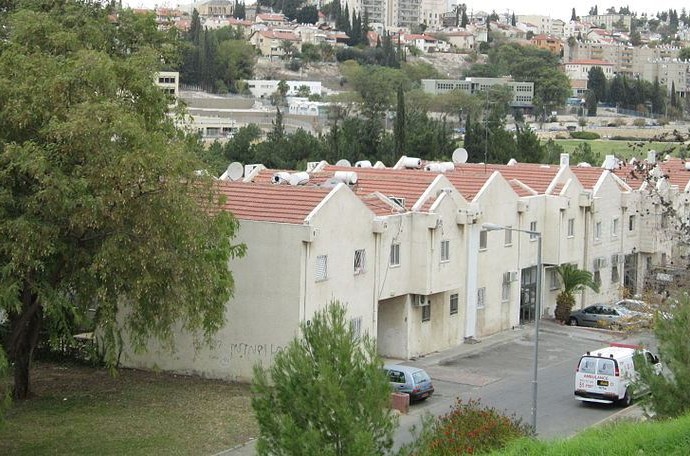Stories in the media about falling Israeli property prices look like good news for buyers and bad news for investors, but do these statistics tell the true story?
To paraphrase Mark Twain, reports of the demise of the Israel property market have been greatly exaggerated!
While the Ministry of Finance reports that real estate deals dropped 15% in the last quarter of 2016, demonstrating a cooling down of the Israeli property market, and the Central Bureau of Statistics’ report showed a 1.2% decline in the housing prices index at the end of 2016, but another report by the Appraisers Association shows that average apartment prices rose 1.7% during the fourth quarter.
So who and what should investors believe?
Israel’s Finance Minister Moshe Kahlon is under pressure to show that his policies have helped to reduce housing prices, but a closer look at the figures shows that the facts do not support this claim. The cabinet decided several months ago that they would only publish house price data from the Central Bureau of Statistics (CBS) and not from Israel’s Real Estate Appraisers Association.
The chairman of the Appraisers Association, Ohad Danos, is quoted as saying that the CBS index showing a fall in house prices in December 2016 is misleading. The Association’s own survey shows continued price rises among new and second-hand four-room apartments in 16 cities. They say that prices rose during the fourth quarter of 2016, averaging 1.7% higher than the previous quarter. They also compared this period with the corresponding period in 2015 and found an average 8.3% increase in housing prices since last year, with the highest rise being 13% in Tel Aviv and the lowest 2% in Haifa.
It is important to note that the Appraisers Association survey looks at the average price of four-room apartments in specific cities, but prices can vary between different neighbourhoods. They reported on the standard deviation for each city, showing that prices varied by 30% between different areas of Tel Aviv, and by 20% in Netanya and Jerusalem.
Analysts say that while the CBS survey is more comprehensive than the 16-city survey by the Appraisers Association, it is skewed by the inclusion of buyer fixed price deals. This is a system of housing project tenders that was introduced by the government to encourage contractors to build cheaper housing. They compete to submit bids for new housing projects that are lower than the maximum price set by the government. In one new Ramat Beit Shemesh project, for example, the tender achieved a 17% discount on local market prices.
Comparing the CBS and Appraisers Association figures for a specific city, Danos points out that fixed price tender sales accounted for 25% of all deals in the city of Rishon Lezion during the last quarter of 2016. Such deals are clearly skewing the picture, and Danos claims that without these housing project tenders, the Rishon Lezion real estate market would have shown a 1% rise in prices instead of a 6% decline. It is clear that including these government tender projects in CBS house price statistics gives a misleading picture of an overall fall in market prices, which is what the government wants its voters to see.
The CBS survey also points to a sharp fall in the purchase of new homes by first time buyers, but admits that many young couples are holding out for buyers fixed price tender projects. Building low-price housing is clearly good news for young Israeli couples, but it should not disturb overseas investors unduly. The overall housing market in Israel remains strong, with core demographics for marriage rates and expected Aliyah from Western countries continuing to drive demand for residential property.
According to government statistics, home purchases for investment fell 27% in the fourth quarter of 2016 and made up only 17% of all residential apartments sold. These figures compare purchase data with the previous summer quarter, which was a stronger season for the real estate market, and not the last quarter of 2015, which was similarly weak.
Those realtors who are talking about Israeli property prices starting to drop may be trying to drum up business in a slow winter market. They point to an increase in mortgage interest rates, an increase in purchase tax to 8% in July 2015, and a new tax on owning a third housing unit, due to come into effect on April 1, but most believe that that the overall trend is not changing. Some realtors talk anecdotally about sellers having to reduce prices to sell their properties, but admit that sellers may have unrealistic expectations and their asking prices may have been over-inflated.
The Appraisers Association survey of 16 Israeli cities shows that in the last quarter of 2016, average apartment prices increased by 4% in Holon and Ashkelon, 3% in Netanya and Kfar Saba, and 2% in Ashdod, Modi’in, Ramle, and Tel Aviv. Average increases in prices were recorded as 1% in Beer Sheva, Jerusalem, Petah Tikva, Rishon Lezion, and Rehovot, and there was no change in average housing prices in Haifa, Herzliya, and Eilat compared with the preceding quarter.
To quote Mark Twain again: “There are lies, damned lies, and statistics
